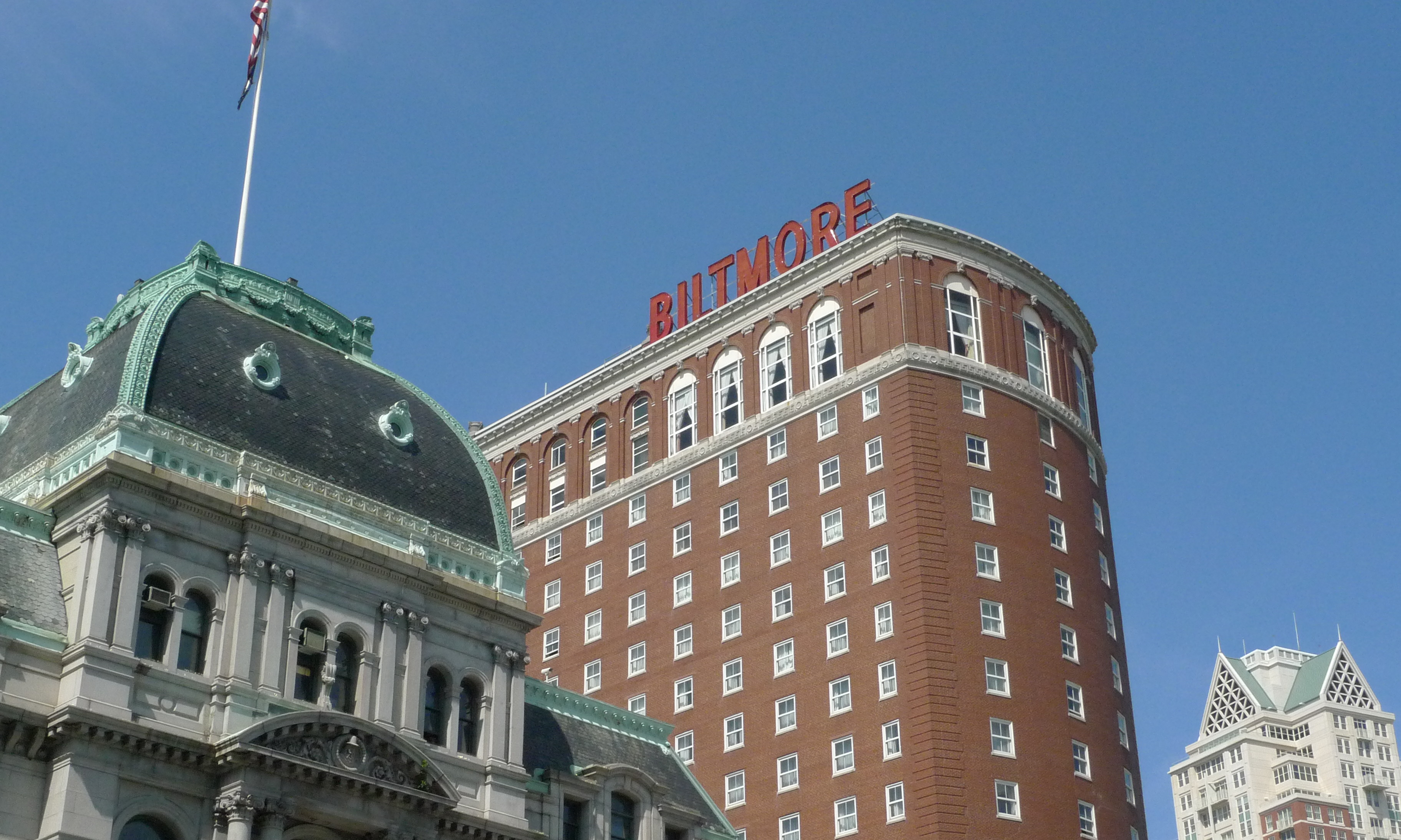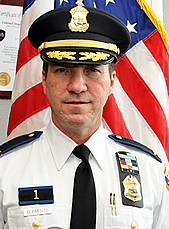Hugh Clements became Providence’s 37th Chief of Police in 2012. Clements has received recognition for his service from the FBI and holds a bachelor of science in justice administration from Roger Williams University.
Brown Political Review: What was your initial reaction to the events in Ferguson, Missouri?
Hugh Clements: My initial reaction was that there were flaws by the local authorities in their approach: More information should have been released more quickly. The appearance that they used force in their law enforcement tactics — such as when they brought out the artillery before they had conversations or tried to develop a relationship with the protestors — is something that I thought was in error.
BPR: How would you have managed the police response in Ferguson differently?
HC: I would have tried to develop a rapport and communicate with people who wanted answers and with leaders in the community. They certainly have a right to protest, and I would have promoted peaceful protesting and set standards around that similar to those we set with Occupy Providence. We were given praise for the way that we handled that — by having continuous meetings with the leaders of the Occupy Movement. We actually escorted them in marches and set up circumstances in which they could peacefully protest. We certainly wouldn’t go there with heavily armed officers and in big numbers. In fact, we stayed off on the side. Unlike what you saw on the West Coast and elsewhere around the country, we had zero violence.
With respect to the Ferguson situation, coming out with the heavy artillery and a large show of force has shown, over time, to be a mistake. It goes way back to the ’60s with the racial strikes or to 1999 with the World Trade Organization protest in Seattle. There are lessons to be learned by law enforcement when coming out with vehicles, and in the uniforms that the police wear, and with the numbers that the police bring out. The absence of police sometimes fosters a better relationship, or police in small numbers; someone from a position of authority in the department who can speak to the leaders of the organization to give answers and to find out exactly what they’re looking to do.
BPR: In the wake of the shooting, many have advocated for police to wear body cameras. With local police departments stockpiling expensive military gear, why isn’t this technology more widespread?
HC: Economics are a huge issue with technology and policing around the country. There may be some opposition from unions, but I know there are also some unions that are very much in support. We haven’t had the opportunity to have that conversation here in Providence yet. [The military gear question] is separate — that’s equipment given to police via the 1033 program. The federal government doesn’t have the body camera equipment to just hand out to local law enforcement.
BPR: According to Go Local Prov, Johnston, Rhode Island “obtained 30 units of armor plating, nearly 600 high-capacity rifle magazines” and other equipment. Does Johnston’s local law enforcement really need to be that militarized?
HC: I don’t know the inner workings of their town well enough to comment on what they need or what they don’t need from a law enforcement standpoint. I know the police chief well and I’m sure he took into account how important it was to protect his community and that he put a lot of thought into the judgment as to whether to take that equipment.
BPR: Where do you draw the line between necessary preparation strategy and excessive militarization?
HC: I think it’s important for law enforcement to be prepared. There is a rise of civil unrest around a number of issues surrounding this complicated political world that we live in. Especially being in a capital city, we’re prone to having more visits and conferences of a pretty fiery type. We should be prepared for a hot-button issue to draw the attention of radical groups that may want to cause violence within the community. However, it’s important from the standpoint of law enforcement to not show an aggressive stance or to use brute force in return, and in fact, police should not try to escalate the situation.
BPR: Trust seems to be what distinguishes between necessary preparation and excessive militarization. How do you build trust with the community?
HC: We have a police department advisory board comprised of members from the community, the clergy and many different groups in the city and state, but we also have nontraditional partners in the community too, including the Institute for the Study and Practice of Nonviolence, a gang intervention unit. I think it’s important that we’re connected to many of the different organizations in the community, including the National Association for the Advancement of Colored People. We have members of the Providence Police Department who serve on the Southeast Asian community board. We also serve on housing boards throughout the city, which is not a traditional thing for police departments around the country to do. Most importantly, it’s about accountability in the community, transparency and respect — respect to the community that we police and respect to the individuals with whom we come in contact.
BPR: You’ll recall the activism that drove Ray Kelly from Brown University’s campus last year. Many of the protestors were Providence citizens: people of color who feel personally victimized by your policies. How do you respond to their stories?
HC: I was very disappointed that we were unable to hear Commissioner Kelly speak. I understand the concern in the community, but it’s always about the communication. The issue in policing diverse communities in America, and all communities really, is that people are very concerned about violent crime. We go to community meetings all the time where people of color impress upon us the importance for more police in their communities and for greater enforcement. Where the community wants some heavy or solid enforcement action from their police department, we must, as a department and individually as police officers, balance individuals’ constitutional and civil rights in performing our police duties. Our policies actually promote that. We have a high volume of calls, a high volume of interactions in the community. And based on that, our percentage of complaints is not that high. It’s really not.

